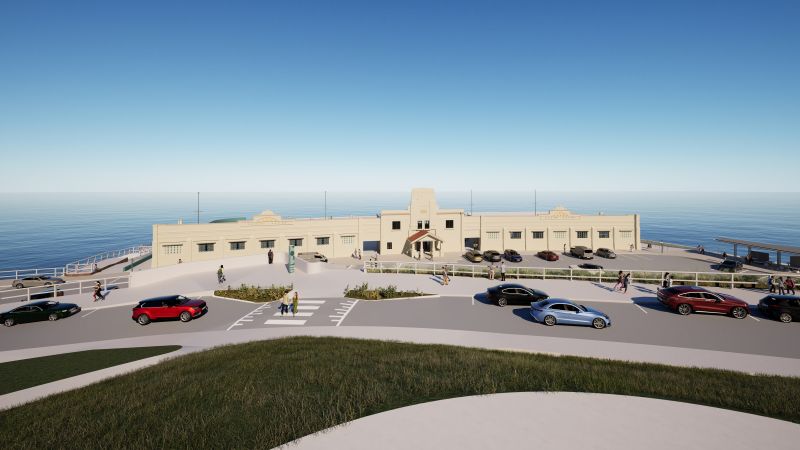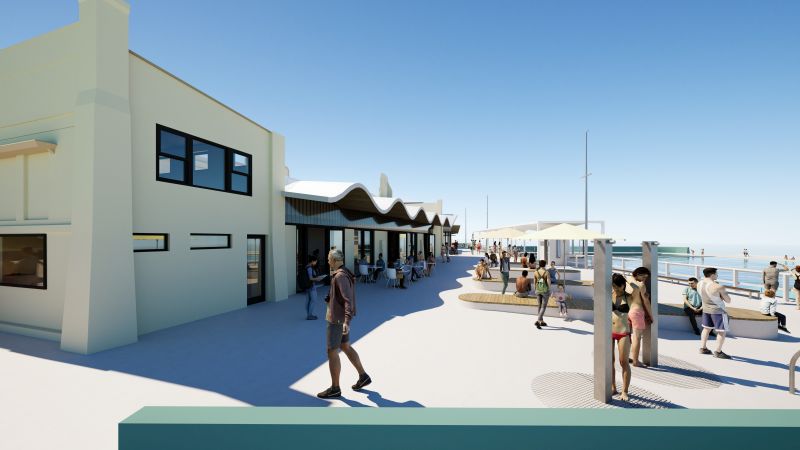Hundreds of public schools across metropolitan and regional NSW will benefit from improved facilities following a billion-dollar boost for maintenance and minor upgrades.
The investment in our schools is part of the NSW Labor Government’s long-term plan to rebuild the state’s education system.
Deputy Premier and Minister for Education and Early Learning Prue Car, and Treasurer Daniel Mookhey, are today visiting Bonnyrigg High School, one of the schools to benefit from the funding injection.
As part of the 2024 to 2025 NSW Budget, following years of campaigning, the school will receive an upgrade to its bathrooms. Planning for the improvements will start in coming weeks, in consultation with the school.
A record $1.08 billion pipeline of investment for minor works in the coming financial year alone will support the delivery of $600 million for school maintenance work, alongside $150 million in essential works to boost disability access and safety, and $200 million for small upgrades and refurbishments.
Projects will focus on lifting standards of important facilities, particularly school bathrooms, as well as improving classrooms, science labs, workshops, performance and arts spaces and vocational education and training facilities.
Maintenance work in schools includes:
- Painting
- Repairs and replacements of roofs, fences, windows, doors ceilings, and carpeting
- Electrical repairs and upgrades
- Floor coverings
- Continuing to support urgent repairs in schools when needed
The Department of Education will work with principals and school leadership over coming months to prioritise projects.
The boost in investment comes as 62,000 longer-term school maintenance tasks have been carried out by the Department of Education in 2023 to 2024 so far, including maintenance works for close to 2 thirds of the state’s public schools, or 1492 schools in 6882 individual building.
Our plan to build a better NSW
Since being elected the Minns Labor Government has been working on a comprehensive plan to invest in and rebuild public education in NSW.
We are making the responsible decisions to ensure every family in NSW has access to free, quality public education.
This includes building new schools and upgrading existing facilities in rapidly-growing communities like those in Western Sydney, where this year’s budget delivers $3.6 billion for a pipeline of more than 60 new and upgraded schools.
This includes an overdue new public and high school for Box Hill in Sydney’s North West – with a temporary public school to take enrolments from next year.
Building, maintaining and improving essential services like public schools is key to building better communities and addressing the cost of living as families find it increasingly difficult to make ends meet. It is part of our plan to build a better NSW.
Deputy Premier and Minister for Education Prue Car said:
“This year’s budget will strengthen our commitment to keeping our schools and equipment in the good condition that our communities deserve.”
“Our public schools are the lifeblood of our communities, and we want teachers and students to feel proud to study and work in them – central to that is ensuring that they are maintained to a high standard and have the most up-to-date facilities.”
“I visited Bonnyrigg High School in November last year, to see first-hand concerns about some of the school facilities. I am pleased to be here today to announce that the school will benefit from this month’s back-to-basics Budget.”
“This investment will also give local economies a boost, supporting jobs and opportunities for local trades and businesses.”
“We are continuing our record investment in Western Sydney schools, whether it is to build the new and upgraded schools that these communities need or upgrading our existing schools for our teachers and students.”
Treasurer Daniel Mookhey said:
“Improving the conditions of NSW schools is a must-have to ensure that students and teachers have the best environment possible to learn and teach.”
“This Government is continuing to deliver on its promise to rebuild the state’s public education system.”
“When I visited Bonnyrigg High School earlier this year, I heard from the staff and students about their concerns.”
“This billion-dollar investment will make a material difference for 1,400 public schools and their communities.”
“We have the cut state’s debt, so that we are paying less on the state’s interest bill. We are now using those savings to make a difference for schools across NSW.”

 A render for the Concept Plan for the final stage of the Newcastle Ocean Baths upgrade.
A render for the Concept Plan for the final stage of the Newcastle Ocean Baths upgrade. A render for the Concept Plan for the final stage of the Newcastle Ocean Baths upgrade.
A render for the Concept Plan for the final stage of the Newcastle Ocean Baths upgrade.